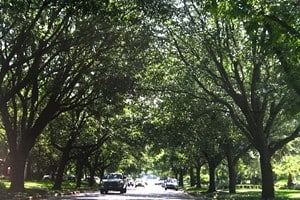
Asthma sufferers in Texas are not strangers to cedar fever season.
Cedar fever, an allergic reaction to the pollen produced by mountain cedar trees, is most common in Central Texas from winter until spring. Despite its name, it does not actually produce a fever, but instead has all the symptoms of a normal allergy or asthma episode – runny nose, sneezing, coughing and trouble breathing. While Texas residents are not strangers to cedar fever, it always compounds already severe asthma issues, and is being further complicated by the country-wide cold snap, because extreme weather conditions also have adverse effects on those with breathing afflictions.
Experts in Texas are predicting that cedar fever will be even worse in 2014 as a direct result of the unusually high amounts of rain the state received last October. While this was a short-term solution to stave off a state-wide drought, it has increased the chances for cedar fever because of the health of the mountain cedar trees. Also known as ashe junipers, these are the only kinds of trees that pollinate throughout the winter, which is why their effects are so strongly felt.
According to Dr. Bill Howland of the Allergy and Asthma Center of Austin, himself an allergy sufferer, hospitals will see a spike in patients who are having asthma attacks because their immune systems could already be compromised by the normal viruses – such as the flu and colds – that move through all populations during the winter. Because those with asthma have already vulnerable systems, they will not be able to fight off these diseases.
“We had some people who were dropping their lung functions 40 to 50 percent — very significant declines,” Allen Lieberman, a colleague of Dr. Howland’s at the Allergy and Asthma center, told local Austin news station KVUE.
US Air Purifiers’ line of affordable air purifiers can help anybody – with or without asthma – breathe comfortably.